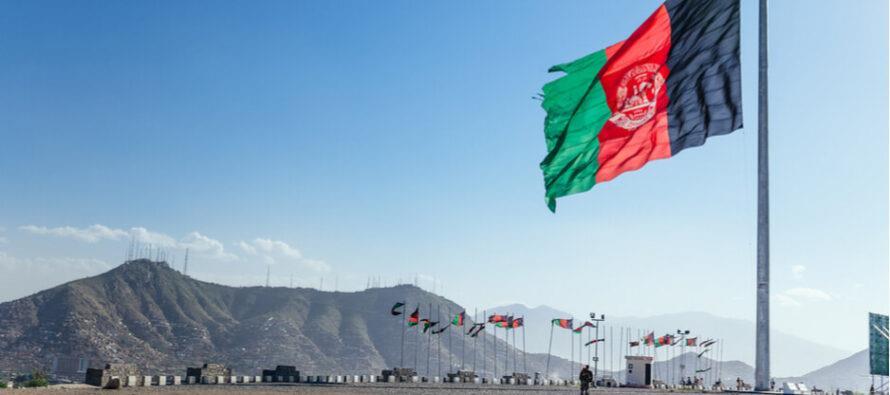
Women's Participation in Peace Efforts Vital to Sustain Peace in Afghanistan
(MENAFN- Wadsam) The Afghanistan Research and Evaluation Unit (AREU) and the UN Women- United Nations Entity for Gender Equality and Women's Empowerment, in Afghanistan launched a case study paper titled: Women's Participation in the Afghan Peace Process, on the occasion of the International Day of Peace, celebrated worldwide on 21 September.
Representatives from the government, United Nations, human rights and women's rights movements and activists attended the virtual event.
'Promoting women's rights, protecting gains, and incorporating women's voices is essential for achieving sustainable peace, inclusive development and a just society', said Ms. Aleta Miller, UN Women Representative in Afghanistan. 'As this year also marks 20 years since the adoption of Security Council resolution 1325, we have an opportunity now to use the momentum around this anniversary to amplify women's voices and elevate their participation on peace in Afghanistan', stated Ms. Miller.
AREU Director Dr Orzala Nemat said, 'Today is the International Day of Peace and there is a particular interest on this day in countries that are burning in the fires of war, and unfortunately Afghanistan has been experiencing violence, war and discrimination, against everyone, particularly women as they are more vulnerable and oppressed.'
'The International Day of Peace, the 20th Anniversary of the UN Security Council Resolution 1325 and the ongoing peace negotiations in Doha, are three remarkable occasions and we are pleased to launch a series of four sessions highlighting women's political participation and the first session that took place today focused on the role of women in the peace efforts,' Nemat added.
'Women and girls have taken the brunt of conflict, so why do we continue to see peace and women's rights framed as a trade-off? They are not at odds', said Dr. Habiba Sorabi, a member of the Peace Negotiations Team. 'The women of Afghanistan are clear – peace must mean peace for all Afghans and must not come at the expense of the rights of the women.'
'The intra-Afghan peace process cannot ignore an undeniable force that has emerged in Afghanistan's recent history: women's demands for a future Afghanistan that respects and promotes their human rights are stronger than ever', said Ms. Ingrid Hayden, the Secretary-General's Deputy Special Representative for Afghanistan. 'Afghan women need commitments and action to ensure their participation and the continued protection of their human rights in an inclusive Afghanistan. This intra-Afghan peace process is the opportunity for that', said Ms. Hayden.
The study found that women's participation in peace efforts is vital to sustain peace in Afghanistan, and that both the government and the international community must play an active role in supporting women's seats at the table and their meaningful participation. Interviews reveal that so far, the role of women has been mainly symbolic. However, women have found creative ways to maximise what they can do in the confines of the space where they operate. This includes basic awareness-raising about peace, but also engaging in direct talks with anti-government elements.
The study shows that the main barriers to women's political participation is the profusion of society-based violence against women, ideological barriers and cultural norms that have actively excluded them from political and social spaces and roles. Insecurity has affected women adversely by limiting their ability to move freely. Traditional barriers such as low levels of literacy and poverty are among the other barriers.
The paper is based on the findings from 77 qualitative interviews with women and men in Kabul, Bamiyan, Balkh, and Nangarhar provinces, and has come up with some practical and evidence-based policy recommendations for policymakers and other stakeholders that are engaged in the peace process to consider.

Legal Disclaimer:
MENAFN provides the
information “as is” without warranty of any kind. We do not accept
any responsibility or liability for the accuracy, content, images,
videos, licenses, completeness, legality, or reliability of the information
contained in this article. If you have any complaints or copyright
issues related to this article, kindly contact the provider above.


















Comments
No comment